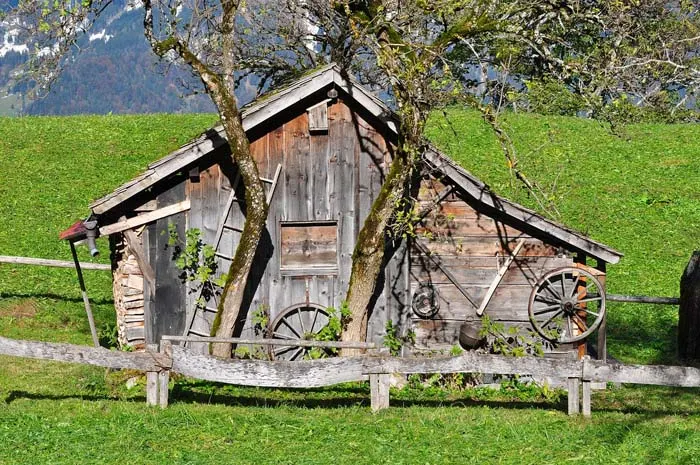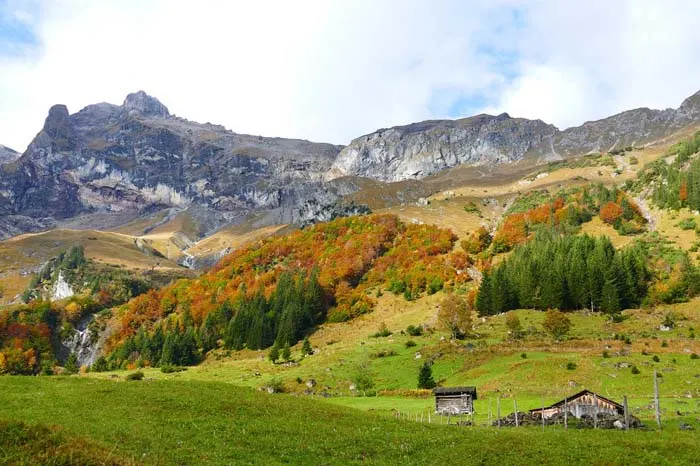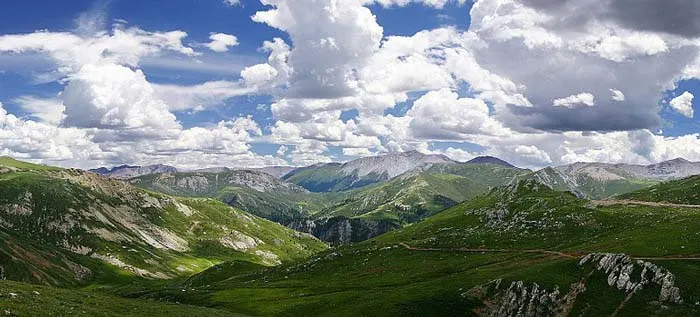Land is the foundation of life. It provides all the resources needed to put down roots and gives you an area to call home. A place all of your own. Land gives you a place to grow, good footing, and a solid foundation to build upon. So it goes without saying that you need land to start a homestead, you need land to go off grid. For without land you’ll spend the rest of your life making everyone else rich through your labors. But alas, finding land that you can afford, that is open and free to build upon, and that will lend itself and is conducive to off grid living is difficult to say the least. How to find off grid land is the purpose of this article and we’ll delve into the fundamental basics of choosing the perfect property.

First and foremost you must consider what being off grid is and what it means to you before you choose your land. Real estate is a complex and detailed business, and there are many rules, regulations, restrictions, covenants, and ordinances of any given town, city, county, municipality. The rules are vast and broad and some are very restrictively specific. Some land and lots for sale might have protective covenants and restrictions on what types of dwellings are allowed. Some HOA (Home Owners Associations) even dictate what materials you are allowed to use to build your home, even down to what color and how your home looks. Not to mention that if there’s a HOA, the likelihood that they’ll allow you to have livestock on your land is almost nil. Unless of course you live in an off grid community.
Off grid living is about being self reliant, sustainability, independence and freedom. Freedom to build and live the way you see fit. It’s a way to get back to our roots while also keeping the luxuries of high technology and comforts of modern home life.
So suffice it to say, it’s probably a good idea to choose a property that fits your lifestyle choice and allows for expansion and building upon these core values. The type of building you will be living in is just one aspect of how to find and choose land for off grid living. Here’s a short list of things you will need to consider while on your journey to find off grid land.
How To Find Off Grid Land: Things to consider
- LOCATION & RESOURCES – The location must have the resources you need to be self sufficient, (i.e. water, trees, etc.) or at the very least, those resources need to be nearby and you should have easy access. Stockpiling resources is an option, but ideally you will want to have the land provide as many resources as possible. Choose a parcel of land or smaller lot that is close to a good supply of resources. Whether that’s a small town, a city or natural resources that you can use.
- AWAY FROM THE CITY – This is perhaps the second most important aspect when searching for the perfect off grid property. The closer you are to a larger city, any city for that matter, the more rules and restrictions there will be on what you can build and do with your land. Choosing land outside of developed areas will go a long way to providing you the freedom to build what you like because land is not only less expensive, but it has fewer restrictions. Some small towns and counties will even tell you that they don’t enforce building codes outside city limits. That’s not to say that you don’t have to build to code, but it will let you make that decision for yourself. This is also not to suggest that you break the law, as that would not be cool. Building codes are meant keep people safe, and it’s best to build to code anyway just in case. The point is that the further you are away from a major town or city, the less likely there will be restrictive covenants and regulations preventing you from building what you want.
- LEGAL ACCESS – Don’t choose a property that is land-locked. A land-locked property is one that is surrounded by either private or public land and that has no legal access. No roads, no driveway, no trail, etc. Yes there are properties out there like that, and there are unscrupulous people who would sell them to you. Always ASK if the property has legal access. In other words make sure you have deeded access to the land or at the very least there is a legal easement recorded with the county and it’s signed by the landowner’s whose property you must cross to reach your own land. Ultimately it’s probably best not to own a property which is land-locked, but if there is a good easement, and everyone is in agreement, then it might be the ideal location. Do your due diligence.
- PHYSICAL ACCESS (Year-Round) – Being close to a main road and having legal access is important, and just as important is physical access. You must also consider weather. Specifically speaking winter and wet seasonal access. If the roads leading to your property are not maintained year-round, how will you reach your land? If there’s 2 feet of snow on the road you will be stuck in your home until the snow melts, or someone comes along to plow the road and driveway for you. If you’ve prepared, you have a snow plow on the front of your 4×4 vehicle or ATV. This will at least allow you to get out of your place if there’s a blizzard. How about heavy rains? It can flood old back roads and wash it out in places. At the very least the roads will be wet, slippery and muddy. You could get stuck very easily if the roads leading to your property are not well maintained. Some remote communities have well maintained roads, either by the city, county, or by the home owners associations for the subdivision or community of residents. In a typical home owners association like this, some of the annual dues go to the maintenance of roads and fences, especially during inclement weather. Well maintained roads are a must unless you have a big 4×4 and don’t mind bouncing around and over rocks, mud holes and bumps to get to your land.
- NO RULES OR FEW RULES – This is where protective covenants and restrictions will limit your choices. Here’s the thing. Finding affordable land is actually easy. However, find affordable land that is free from covenants and restrictions and subdivisions, and home owners associations, that my friend is an entirely different story. Now, this isn’t to say that you can’t live off grid on a plot of land that has covenants, but it will certainly limit your freedom somewhat.
- ZONING & PROPERTY TAXES – You must consider how the property is zoned. This will not only dictate how much you will pay annually in property taxes, but also in how much you pay for the land. There are 3 main types of zoning. Residential, agricultural, and commercial. Most likely you will not be purchasing commercial land unless you have a business and need commercial land. You’ll probably choose a residential zoned property. An entire book can be written, and many have been, on real estate zoning and that is way beyond the scope of this short article. Suffice it to say to simplify things, land that is zoned residential typically has higher annual taxes than agricultural land on a per acre basis. The obvious choice here (if all you were considering were your property taxes) would be to choose a piece of land that is zoned for agricultural use. The only problem with this is that most counties throughout the USA have a minimum parcel size to qualify for agricultural zoning, and that usually ranges around 40 acres or so. This will increase your initial investment amount, but will lower your property taxes over time. You must also consider the minimum lot/parcel size for residentially zoned land as well. Some residential land zoning will not allow for livestock. So having chickens, cows, pigs, etc. will be out of the question. Which is why the further away from a major city you go, the less restrictions there will be as a general rule. Figure out what you are going to do with your land, if you will have livestock, a garden, a ranch, or just a cabin in the woods. Then choose the type of land which is zoned in a way that will allow you to live the lifestyle you wish to live.
- PRICE & AFFORDABILITY – Price and affordability are important, but not as important as you might think. Of course you must be able to afford a property, and it’s rather pointless to tell you to only buy something if you can afford it. Check the tax records and make sure you can afford the taxes. Why? Because sometimes the taxes are so high on a residential zoned plot of land that it could be nearly as much as the mortgage payment itself. I’ve seen it happen on smaller lots and larger parcels.
- FREE FROM ENCUMBRANCES – Make sure that there is clear title, no tax liens, taxes are current, mortgage is current or paid off, the property is not in foreclosure, and that the land is not in the midst of a legal battle. The last thing you want to do is move onto your new land and find out a month later that there’s a legal battle and ownership of the land is being disputed. Check court records. A simple title search should tell you most of everything you need to know. Ask the agent or landowner. If it seems too good to be true, or you get a bad vibe, walk away. It’s not worth the hassle and heartache to get into a property only to find out it wasn’t legally sold to you.
- TRADITIONAL BANK LOAN/MORTGAGE vs CONTRACT FOR DEED – Now we’re getting down to the nitty-gritty. How will you finance that perfect off grid land? Are you going to pay cash? Are you going to go with a traditional bank loan? Or are you going to do a Contract For Deed (CFD)? All have their pros and cons, their positives and negatives. Most people do not have $100k laying around to drop on a parcel of land. Even $25k is hard to come up with, and people are stuck saving money for years and years to get enough money to make the move. It’s a story that’s all too common. It’s scary to think that you’ll have to work and save money and wait 20 years before you can have your dream home. We’ve been conditioned to believe that’s all that’s possible, and that’s the way to do it. But honestly, it’s a waste of time, effort, energy, and money if you want fast results. If you’re willing to wait, then saving is the way to go, and investing is even better. The problem though is this. See, as you are saving money to buy your off grid homestead, or dream home in the mountains, inflation is eating away at your savings. Not directly mind you, but it’s destroying the foundational value of each dollar you save. That’s why it takes so long to save enough to buy a large pice of land, or any large ticket item because a dollar saved today is not worth as much in a year as it is right now. Sure you might earn some interest on that dollar, and you might have made a good investment if your money is invested in stocks or bonds, but the fact is, the dollar, if left alone, will most likely not be worth as much next year as it is now. So, when you save money, you must continue to offset inflation by saving even more money to compensate. For some folks this is just not possible as they live from paycheck to paycheck. And this is exactly why it takes so long to achieve the dream of owning your own home and land. But there is hope. Bank financing. Not big international banks, but local banks. If you’re going to go the traditional home lending bank mortgage route, then consider getting a loan from a local bank instead of an international bank. This is not ideal because it’s still a bank loan, but it will help support the local economy and the community more readily than a loan from an international conglomerate. Last but not least you have landowner financing, and in this author’s opinion is the best way to buy land if you know what you’re doing and are comfortable with getting into a contract directly with the landowner. When you buy direct from the landowner you’re not just helping them, you’re helping the local economy. You’re also saving yourself money in bank fees and probably interest accrual as well if you can negotiate a good interest rate. A Contract For Deed directly through the landowner is probably one of the most powerful and most simple financing options available in the real estate world. It does bring with it certain risks such as disagreements with the landowner, or miscommunications, but if you both have a good general idea of what you want out of the deal, and it’s clearly represented in the contract, then it’ll go a long way to providing you both what you need. Contracts for deed usually require a larger down payment to the landowner because they have to pay off the current mortgage, or if it’s owned outright, the landowner probably at least wants their equity out of the land and wants to make a profit. There’s nothing wrong with that, and it’s understandable considering the fact that if the landowner owns the property outright, then they’ve been paying on that property for a very long time, and they want a return on their investment. Ask. Make an offer. The worst they can do is say no. See if you can just take over payments with no money down, or do a lease with an option to buy. Get it in writing, signed and notarized. There are lots of creative financing methods to choose from when purchasing real estate.
As with anything doing your due diligence is important. If you don’t do your homework, you will regret it unless you just get lucky. Study, research, search, and don’t get in a hurry. Being self sufficient is about being prepared. It’s about planning, and planning is about doing the research you need to do to make a wise and informed decision. Because when it comes down to it the land you choose now will be the land you have to deal with tomorrow. Make sure you want to deal with it, that there won’t be any surprises, and you know what you’re getting yourself into.
Finding off grid land is fairly simple if you follow these basic guidelines. These are simple tips that are meant to give you an outline of how to find and buy land that is conducive to living off grid, farming, homesteading, and living the sustainable lifestyle.
Ultimately, and most importantly, it comes down to doing what’s best for you and your family. Do only what you feel comfortable with, and what makes you happy.
Further Reading:
How To Find Land For Living Off Grid
“All About Resources”
How To Make a Living While Living Off The Grid
***



A guide to living off of the grid – Technology Info
Wednesday 8th of September 2021
[…] should seem obvious, but at the very least you’re going to need to own your own plot of land. It’s going to need to be a plot of land that’s off the grid on its own — of course, […]
HOW TO LIVE OFF THE GRID: 8 THINGS YOU NEED NOW
Monday 16th of March 2015
[…] you’ll need a good location. How do you find that? Well we wrote a good article detailing How To Find Land For Living Off Grid. It goes into detail about how to find and pick the perfect […]
How To Live Off The Grid: 8 Things You Need Now
Wednesday 17th of December 2014
[…] you’ll need a good location. How do you find that? Well we wrote a good article detailing How To Find Land For Living Off Grid. It goes into detail about how to find and pick the perfect […]
simpleNewz - Off Grid World RSS Feed for 2014-12-07
Sunday 7th of December 2014
[…] How To Find Off Grid Land […]